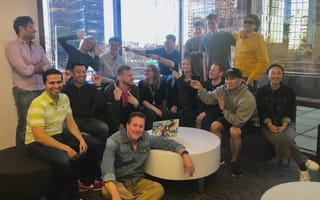Whether they’re part of a teensy startup or a post-IPO behemoth, all engineering teams must balance a healthy dose of collaboration with individual initiative. How each team forges that collective identity defines its culture and, often, its success.
In part two of a two-part series on engineering team culture, we spoke to four more Seattle tech leaders about the secret sauce that binds and lifts their engineers together.
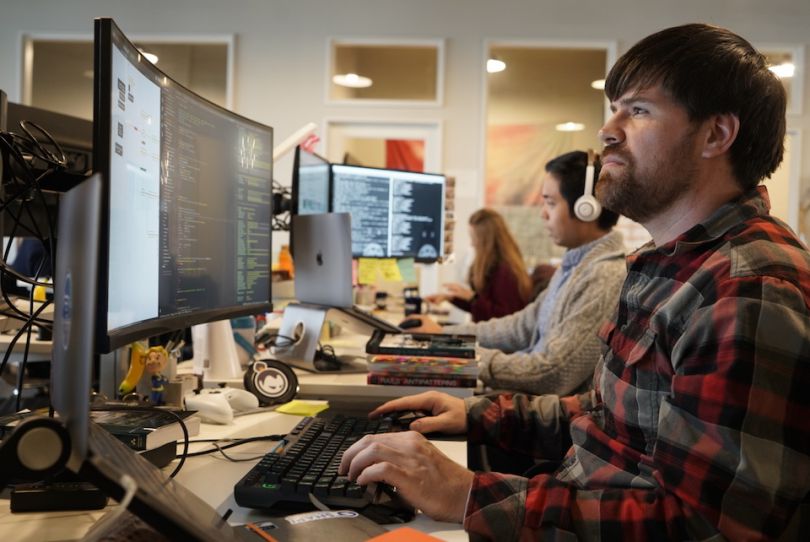
When youth teams and educational programs need to raise money, Snap! Raise steps in as a fundraising partner. The company sets up fundraising web pages, tracks contributions and pulls financial reports, allowing administrators to focus on the programs that actually make a difference in kids’ lives instead of laboring over balance sheets. Headquartered in Westlake, the company was one of Built In Seattle’s 50 Startups to Watch in 2019.
Director of Engineering Alan Allison said the company’s mission is a key motivator for his engineers.
What are some of the most unique things about your team that make it special?
We’ve seen an amazing amount of success in moving to small, cross-functional teams. High-level objectives and projects are chosen by the team and they are given a great amount of autonomy with how they choose to implement and achieve the project objectives. This creates a great deal of team ownership, fosters creativity, and allows us to celebrate each team’s unique contribution.
Given our scale — with millions of users and over 300 campaign directors that work with local teams and groups across the U.S. — the engineering projects we work on have an immediate, verifiable impact. Being on a small team gives us the ability to make such a large social impact every day, which is unique and inspiring.
It’s a unique opportunity when engineering work has such a positive impact in local communities.”
What do you look for when hiring for your engineering team? How can you tell when someone has something unique to add to your culture, and are there any traits that all your team members share?
We are looking for individuals who are passionate about technology and inspired by the social impact of Snap! Raise. We love self-starters who are passionate about full-stack development, and the opportunity to build amazing tools and experiences to support the students, coaches and staff we serve.
Skills and experience aside, seeing an applicant’s excitement about our mission and the real-world impact their work will have with the kids and the groups we support is a big deal. It’s a unique opportunity when engineering work has such a positive impact in local communities. We look for people who are passionate about creating experiences and tools, and enjoy advocating for the best approach or idea.
We have a team that’s energetic and enjoys each other’s company, both in and out of work. The work-life balance, as well as sports and extracurricular activities team members are involved in and chat about at Snap! Raise rivals any other company that I’ve been a part of.
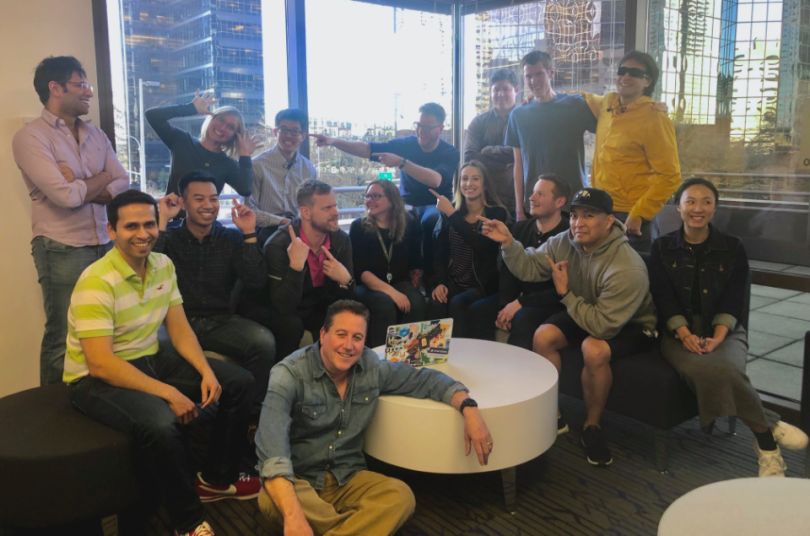
Smartsheet’s workflow management platform has been wildly popular since the Bellevue company was founded back in 2005. By eliminating silos and clearly demarcating responsibilities, the platform speeds up projects and helps produce satisfactory outcomes for all parties involved. The company went to Wall Street for its IPO last year, in which it raised a whopping $150 million.
Product Manager Madyson Morris and Manager of Software Development Garvice Eakins say they see the best results when their engineers work together as a team.
What are some of the most unique things about your team that make it special?
Morris: Definitely our “get it done together” attitude. Our team supports each other so that we can deliver the best value to our customers — while helping each other in the process. When someone needs help or a deeper understanding of a subject matter, our team members are more than happy to sit down and work with them so that they can do their jobs better than before. Everyone wants the company, our customers, and each other to succeed. From the camaraderie of a release night to the day-to-day stand ups, the team cares about each other and I think that really shows.
Who a person is right now is a lagging metric of where they’ve been and what they’ve focused on.”
What do you look for when hiring for your engineering team? How can you tell when someone has something unique to add to your culture, and are there any traits that all your team members share?
Eakins: On the surface, I think we can all agree there are some hard skills requirements that must be met for most software engineering roles — whether that’s the ability to find palindromes, rebalance trees or describe in detail how CAP affects various design decisions. The reality is that, as engineers, we tend to overly focus on these details both as the interviewer and interviewee. I’m usually looking at something far less tangible and, in many ways, significantly more simple: Do I believe you can be successful? If I do my part by providing you with a place to learn, teach, mentor, develop, create and grow, do I believe you will consistently improve yourself, and those around you?
Who a person is right now is a lagging metric of where they’ve been and what they’ve focused on. People who genuinely care about other people are not only improving themselves, but are also positively impacting those around them in very significant ways. To me, that is a massive culture add.
The trait I work hardest to cultivate and develop is a deep desire to support the other members of their team. This comes across in so many different ways, but very simply they are encouraging, take responsibility and always, always, always look for opportunities to grow, develop and mentor each other.
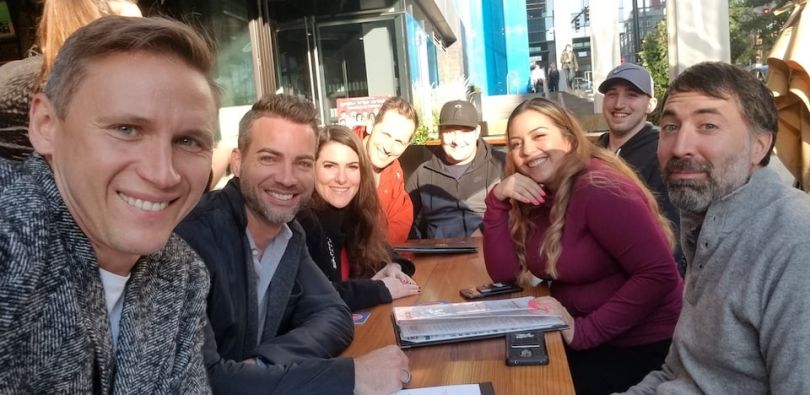
Flipt deploys artificial intelligence on social and housing data to find homes whose owners are going through a life-changing event — retirement, divorce, kids leaving home and more — and may therefore be more likely to sell their home soon. Once Flipt detects this information, it places real estate agents’ ads in front of those people on apps like Facebook and the New York Times, well before an agent’s competitors. Founded in 2014, the company was one of Built In Seattle’s 50 Startups to Watch in 2019.
Chief Technology Officer Jesse Gall said diversity is one of his team’s key strengths.
What are some of the most unique things about your team that make it special?
One of the unique things about Flipt is our diversity. Most of the team speaks English as their second (or third) language. General principles of consideration and professionalism form our common ground, rather than specific experiences. Instead of a tight-knit, cliquey group with a special lingo and rituals, we relate to each other on broader terms. There are fewer preconceptions and fewer normative expectations. Flipties are, on the one hand, under no pressure to accommodate and, on the other hand, unable to hide behind conformity.
In the impetuous, fluid space of marketing, our diversity is the keel that gives us stability and direction.”
What do you look for when hiring for your engineering team? How can you tell when someone has something unique to add to your culture, and are there any traits that all your team members share?
We draw on talent from any viable source. This helps us generate a product which resonates with our audience. We have to find messages for diverse demographics. Uncertainty is necessary in the competitive advertising landscape — novel ideas and unique perspectives are our most important resource. We are often surprised by which method or product comes out on top at the end of a test. In the impetuous, fluid space of marketing, our diversity is the keel that gives us stability and direction.
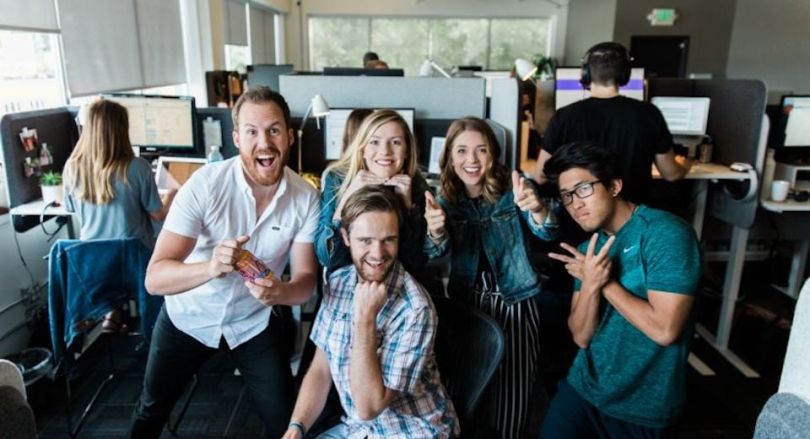
Subsplash puts engagement tools in the hands of churches, helping them to reach wider audiences with a wide variety of services. The Interbay-based company builds websites, mobile apps with audio and video capabilities, donation platforms and digital media libraries. Churches can also use the technology to build their own customized applications and reach users that are looking for new congregations in their local area.
Software Development Manager Dave Drinkle said he looks for humility in successful candidates.
What are some of the most unique things about your team that make it special?
The Subsplash development team tries to exhibit the core company values; humility, innovation and excellence. While most developers work hard to be innovative and excellent with their work, the Subsplash dev team really does lead with humility. This makes a very collaborative environment, where feedback is welcome and ideas aren’t dismissed. Development at Subsplash is all about working together to produce the best possible product.
The people that stand out tend to come at the interview process with a level of humility, a good attitude and a desire to get things done.”
What do you look for when hiring for your engineering team? How can you tell when someone has something unique to add to your culture, and are there any traits that all your team members share?
While hard skills and natural talent are important, I find that these are things that can be taught and generally fall as a lower priority when I’m looking for a new team member. The people that stand out tend to come at the interview process with a level of humility, a good attitude and a desire to get things done. My team members all share a high level of drive to accomplish the work ahead of them, and tend to not be people that only want the theory-craft solutions. I look for humble self-starters, and people that don’t need a lot of day-to-day handholding. I’m looking for people that can push the limits of our team, innovate the product and do it with an understanding that they are part of a greater team of individuals, all of whom have great ideas.
